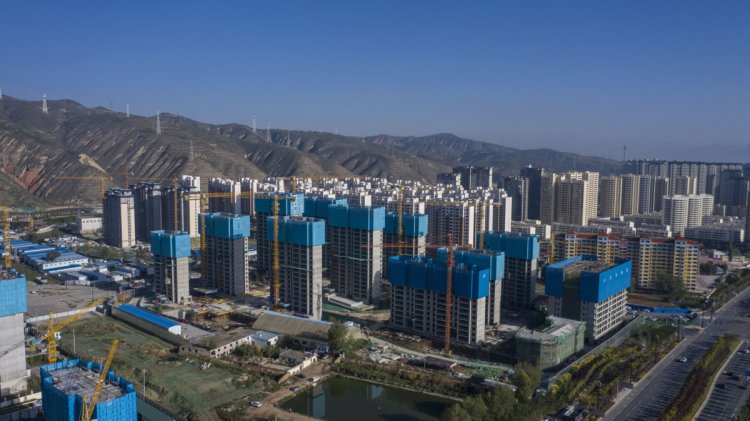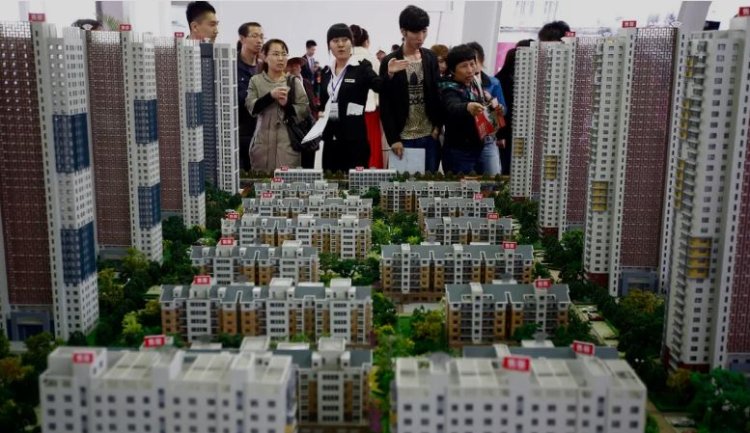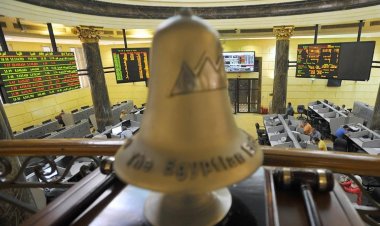Beijing's support fails to restore confidence to the faltering real estate market

The real estate market in China is suffering from continued pressure, despite the government’s measures to support the faltering sector, whose crisis has been going on for months.
Beijing announced a decline in real estate investment by 9.1% between January and September at an annual rate, which constitutes a greater decline compared to a decline of 8.8% in the first eight months of the year.
Home sales have declined by 3.2% since the beginning of the year, and the rate of new home construction has declined by about 24%.
China has reduced down payment requirements in major cities since last September.
Despite a slight improvement in sales this October, homebuyers are wary of the continuation of the real estate financing crisis in light of the global financial crisis.
The real estate crisis in China is linked to the lack of confidence in the faltering sector, given that Chinese families are not burdened with debt.
Two real estate giants take the lead in China: Evergrande and Country Garden.
On October 30, Evergrande appears before the Hong Kong Bankruptcy Court to discuss the liquidation of the assets of the real estate development company. Issuing a liquidation order would harm the troubled company, which is trying to finalize a restructuring plan to pay off creditors.
The effort to divest Evergrande, the world's most indebted, represents a roadmap for developers and other creditors on how to implement a divestment of this scale.

Real estate developer
The real estate developer, whose debts amount to $327 billion, has had about 3 orders issued by the Hong Kong court since the outbreak of the debt crisis in 2021, which represents a major threat to real estate development companies in the second largest economy in the world.
Observers believe that issuing a liquidation order for the company will have wide-ranging repercussions, as it would highlight many problems in China.
The liquidation decision is not subject to appeal, but it may not necessarily lead to the immediate suspension of construction work, housing delivery and other activities of the company.
The liquidation order entails the appointment of a liquidator who will lead the company and work to achieve gains for the creditors from the existing assets. This is not an easy process in dealing with Chinese developers, given that most of the “Evergrande” projects are carried out by local units and it is difficult for the external liquidator to control them.
The time frame for liquidation is an important point, as the process of controlling companies may continue for years. Given the size of the company, the multiplicity of its activities, and the crisis in the Chinese real estate market, liquidation work becomes more complex, which would increase the burdens of the faltering economy.
Evergrande has more than 1,200 projects for sale, as well as tourist resorts and land, where Chinese developers contract with smaller local companies to build local projects. It also owns more than 100 local master units along with a new energy vehicle unit, a real estate services company and an online sales platform.
The company filed an application under Section 15 of the US Creditor Protection Act earlier in 2023. Submitting the application enables the company to benefit from cross-border insolvency management and provide better protection for the debtor.

Country Garden
Looking at Country Garden, with the expiration of the grace period for paying interest on its dollar bonds, it will be considered the company's first default ever on its debts.
The $187 billion company, one of the most indebted construction companies in the world, must pay bond interest by the end of a 30-day grace period that expires within hours or declare default.
Country Garden did not clarify the official end of the grace period, leading to uncertainty.
The property developer faces its first major test as it has become a symbol of China's wider mortgage debt crisis, since warning last week that it did not expect to be able to meet all future external payment obligations.
The volume of bonds payable on Country Garden is $9.9 billion and the real estate developer's dollar-denominated bonds are trading at weak levels of around 5 cents on the dollar, indicating low expectations for debt recovery.
A week ago, the company said it had not made a $60 million payment owed in Hong Kong.
Although the company's default on its debts is not a surprise, it will be one of the largest restructuring operations in China ever, and any default or restructuring threatens to introduce the housing sector in China into deeper turmoil, especially since the number of the company's projects exceeds the number of Evergrande projects.
The housing crisis is having negative impacts on other sectors, including industrial production, as steel, cement and glass production declined last September, while sales of home electronic appliances and office supplies continued to decline.
The decline in home sales has reduced financing for real estate developers, exposing giant companies to the risk of lack of liquidity.
Real estate development financing in China has declined by about 13.5% since the beginning of the year, on an annual basis, after deteriorating by 12.9% in the period between January and August.


 Shrouq
Shrouq 











